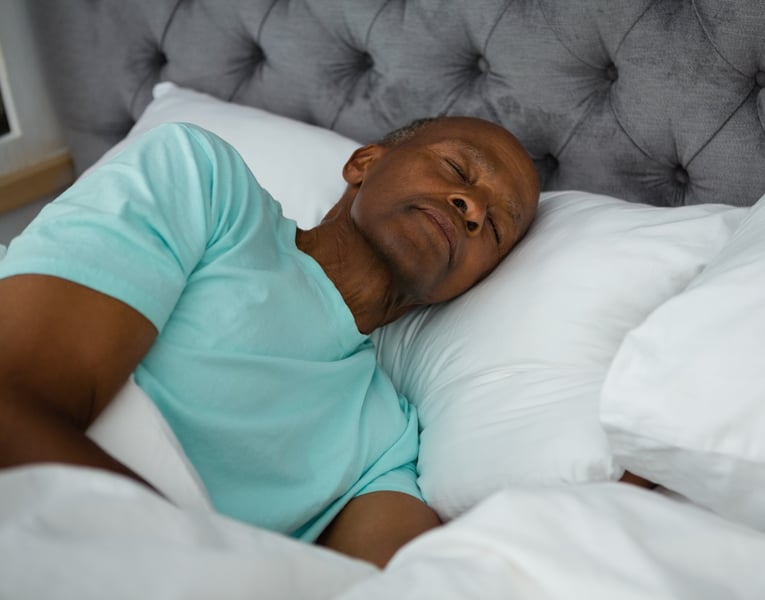Get Healthy!

- Cara Murez
- Posted July 6, 2023
Sleep a Key Defense for Black Americans at Genetic Risk for Alzheimer's
A lot of experts advise getting a good night's sleep. For Black Americans who have a gene variant linked to Alzheimer's disease, that rest could be protective, a new study says.
"This new finding suggests that someone with a high-risk variant might be able to overcome their genetic inheritance by improving their sleep habits,"said lead author Bernadette Fausto, a member of the research faculty at Rutgers University-Newark in New Jersey.
"The findings were striking,"she said in a Rutgers news release.
Black Americans are both at greater risk of Alzheimer's disease and get less sleep on average, Fausto said.
Some of the contributors are city dwelling with population density and more night-time noise and light pollution, which can impact the body's ability to release the hormone melatonin, Fausto said.
Black individuals are also more likely to have severe cases of the disorder sleep apnea, according to a previous study in the Journal of Clinical Sleep Medicine.
"There's a growing awareness that sleep is crucial for brain health and this may be a significant contributor to the high rates of Alzheimer's disease and other dementias among African Americans,"said co-author Mark Gluck, director of the Aging & Brain Health Alliance at Rutgers-Newark. "Sleep disruption of any sort can accelerate the progression of Alzheimer's."
Established research has found a connection between poor sleep and Alzheimer's disease. Also previously discovered is an association with the high-risk ABCA7 gene variant and the disease, the researchers said in background notes.
For this study, researchers explored the interplay between those factors, enrolling 114 cognitively healthy Black people from the Newark area.
The researchers divided the participants into two groups: Those with the high-risk version of the ABCA7 gene and those with a lower-risk variant. All underwent tests related to thinking and memory (cognition).
Participants also assessed their own sleep quality.
Researchers found that people with the risky genotype who reported getting enough quality sleep were protected from developing an early sign of Alzheimer's disease. This is the inability to apply, or generalize, previous learning to a new problem.
Those who also had the high-risk gene variant but who reported poor quality sleep showed impairments in generalization of previous learning.
Sleep is a time for the brain to undertake basic maintenance tasks, according to the study.
"Every cell is like a home -- it generates garbage. This only becomes a problem if that garbage doesn't get picked up,"Gluck said in the release.
That "garbage"gets collected during the specific type of sleep that occurs in the pre-dawn hours. When it doesn't get collected, toxins can accumulate in the brain.
"We spend about a third of our life sleeping or trying to sleep, so that's a pretty significant amount of our lives that's easy to overlook,"Fausto said.
"In many areas of medicine we are seeing the growth of what is known as 'personalized medicine' in which the treatments for a disorder are determined, in part, by a patient's genetic profile," Gluck said.
In the future, Gluck added, it may be that a prescription for someone who has the ABCA7 risk factor is not a drug, but the advice, "You really, really need to improve the quality of your sleep."
Study results were published recently in the Journal of Alzheimer's Disease.
More information
The Alzheimer's Association has more on Alzheimer's disease and genetics.
SOURCE: Rutgers University-Newark, news release, June 29, 2023







